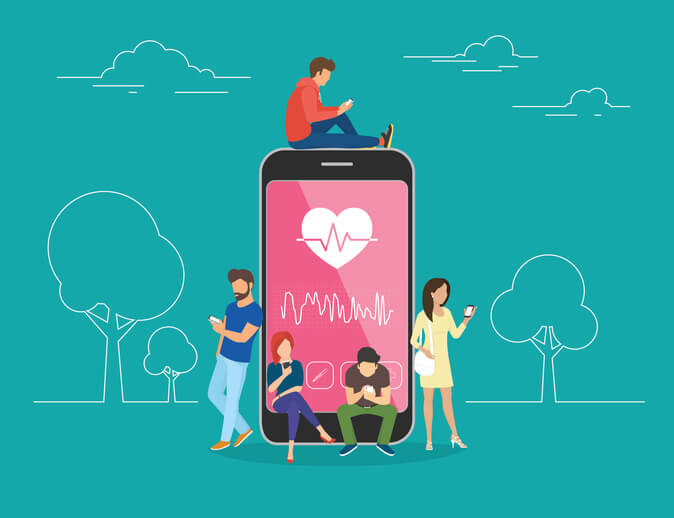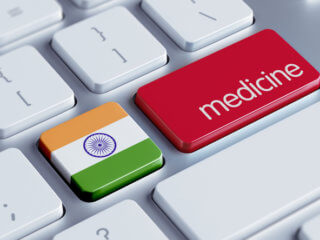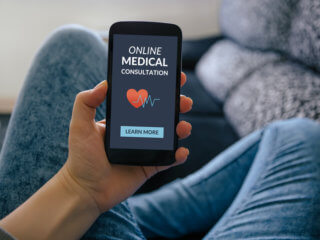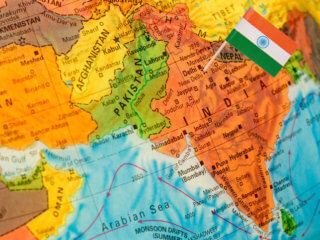mHealth,mobile health & Apps market in Germany
Mobile Health apps, known as mHealth apps, can be divided into two segments; hardware and software. Mobile Health hardware is devices that have sensors for vital rates such as heart rate and blood pressure of the body or the temperature of medications. These devices support monitoring of sports performance or weight loss but can also serve for early detection of health problems and even provide a diagnosis using artificial intelligence and cloud computing. Lets explore mHealth,mobile health & Apps market in Germany.
These devices are often wearable that are integrated into bracelets, watches, or vests or are connected to mobile phones. The data that these devices collect can be sent to physicians or online fitness platforms. The software segment is much smaller and includes apps that help interpret the data (diagnosis) or share it with online platforms or doctors, but also apps to, for example, find nearby medical specialists and pharmacies.
About 70% of the mHealth market share in Germany consists of monitoring.
Mobile Health is applied from wellness to prevention, diagnosis, and therapy. Mobile health can play an important role in prevention and can help people adhere to therapies, thus reducing the need for costly hospitalizations.
The value of mHealth including associated services in Germany was almost three million Euros in 2017, and it has been growing at a rate of 22% during the last few years.
Germany has a large out-of-pocket health market ̶ items that are not covered by health insurance such as vitamin pills and wearable devices ̶ with a per adult spending of 900 euros per year on health in addition to insured health care.
The most popular mHealth products in Germany are fitness trackers. Almost one-third of Germans use fitness trackers or has health apps installed on their phones.

Image courtesy of Statista
Thus, the profits of fitness tracking companies increased from 39 million euros in 2014 to 107 million in 2016 in Germany. While the use of mHealth beyond wellness and integration into primary care is still developing, the market for that was already estimated at about 4.2 billion in 2017. Nevertheless, it is still less than 1% of the total health market.
Innovative mHealth apps in Germany
Startups in Germany are developing a wide variety of fitness and health tracking devices. They include sensors connected to headphones, bicycles, and phones. Some of these devices then use artificial intelligence to interpret these data. These devices can help in weight loss programs, wellness, and ensuring medications are in good condition and taken regularly.
- Insulin Angel: Markets an app that helps you make sure you have your medicine with you and that it stays within the correct temperature range. The sensors are connected to a smartphone, and it also reminds you to take your medicine. Mostly this is for diabetics that need regular insulin, but it also works for other medications.
- Memorado is a new startup that offers games that improve cognitive function: like having a brain gym on your phone.
- fabUlyzer sensors offer a device that helps in weight loss programs. By blowing into it before and after a workout, it tells you how much fat you have burned. They plan to make a wearable device too.
- Qompium is producing a smartphone app that detects unusual heart rhythms.
- Pocket Aid records your health facts and helps diagnose your symptoms.
- Neurofox makes hardware and software with which you can influence your brainwaves, from training your brain to function optimally to Interactive Brainwave Art Installations for parties.
- Blood Pressure Assistant logs your daily blood pressure readings and analyses them for managing blood pressure.
- OnlifeMe is an app that tracks daily condition and gives users feedback using cloud-based artificial intelligence. It also aims to improve the communication between patients and doctors.
- LARA Companion offers not only a health app but particularly focuses on helping couples that are having trouble conceiving a child. This app does not only monitor ovulation like some other apps do but also other factors such as psychological well-being that affect conception.
Other applications tend to focus on connecting patients with medical specialists or pharmacies, such as; Klara which aids in communication between patients, medical teams, and other healthcare providers. HealthNatives is more focused on facilitating contact between patients to share experiences and provide tips. Medlanes assists in providing on-demand health care.
What does the future look like?
Germany is one of the largest health-care markets and Germans embrace mobile fitness devices and apps. Therefore, Germany is a steadily growing market for mHealth. Mobile Health apps are also increasingly used in primary health care and in connecting wellness care with clinical health care, generating considerable revenues. However, compared to other countries, this growth is slower. This is in part due to regulatory obstacles.
An important issue is deciding what apps and devices can be regarded as medical devices that may be included in health insurance.
Since the regulations and remunerations are being adjusted to the new technologies, mHealth will likely obtain a larger role in health care in Germany, and grow faster than before.
Notably, the strict regulations in Germany make mHealth safer and thus reduce the chance of negative publicity, which may be an advantage in the long-run. Germany has an ageing population.
As these elderly become more aware of the benefits of mHeath in prevention and early diagnosis, further market growth is likely. It is estimated that during the next 5 years, the mobile health market will grow an additional 30 to 45%.
While small startups play a pivotal role in this market, for mass acceptance of mHealth, partnerships are needed to bring together all the expertise that is required for end-to-end solutions and to move from small applications to large platform systems.
For mHealth to truly become an important player in health care in Germany, it will need to become well integrated into health insurance, and players such as startups, large companies, and legislators need to collaborate.
Notably, it appears that most people still prefer face-to-face contact with doctors and many people have reported that fitness tracking devices have made them feel bad and thus stopped using them. Therefore, mHealth needs to be well integrated with regular healthcare and apps may need to develop more social skills to provide a positive experience.
It is likely that mHealth will play an increasing role in supporting regular health care as people become educated about the possibilities and the apps become more sophisticated and useful.
Image credit: www.istockphoto.com

















